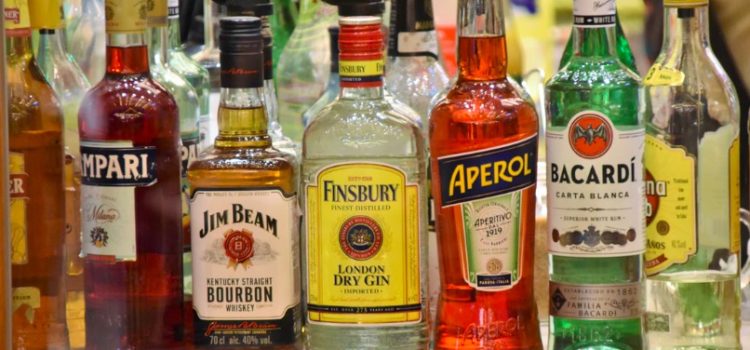

This article is an excerpt from the Shortform book guide to "Talking to Strangers" by Malcolm Gladwell. Shortform has the world's best summaries and analyses of books you should be reading.
Like this article? Sign up for a free trial here .
Is consent while drunk valid? What are the rules around alcohol and consent?
Although recent events have brought questions about alcohol and consent to the forefront, it’s been a thorny issue for decades, particularly on college campuses. Can you give consent while you’re drunk? Should you trust the consent of someone else who’s drunk? Here are some things to keep in mind about alcohol and consent.
Problems with Alcohol and Consent
The assumption of transparency is clearly a problem for trained police professionals attempting to make sense of a suspect and seasoned judges trying to read a defendant. But the assumption of transparency also has devastating effects for young people across the nation.
For example, approximately one in five American female college students has been a victim of sexual assault. Many of these cases follow a similar pattern:
- Two young people (often strangers) meet and have a conversation.
- At some point, a sexual encounter begins.
- One party feels violated by the encounter.
- Later on, it is difficult to reconstruct how things escalated: Was there consent from both parties? If not, did one person actively ignore the other’s objection? Or did one person simply misunderstand the other’s sexual intentions?
It has been established that it is nearly impossible to judge a person’s general intentions based on their behavior or expressions. So how can we expect young, immature people to judge a person’s sexual intentions based on their behavior?
The Role of Alcohol in Consent Issues
There are two major elements that contribute to this pattern of sexual assault among young people:
- There are no hard and fast rules about what constitutes consent, so people are forced to make assumptions: In a 2015 study, 1,000 college students were asked whether sexual activity when both people have not clearly given consent should be considered sexual assault. Half of the students answered that they were unsure. What are the implications of the fact that half of all young people are unsure whether consent needs to be clearly given in a sexual interaction? How can we expect young people to respect boundaries if there is no real consensus of what those boundaries are?
- Alcohol makes it much more difficult to express yourself and to understand others, and young people are often drunk during these sexual encounters: Alcohol puts the drinker into a transformative state of myopia in which only the short-term seems important and longer-term consequences are easy to ignore. Even more problematic, many young people drink to a state of “blackout.” This is key in the issues surrounding alcohol and consent.
The misunderstanding of consent is essentially an assumption of transparency gone wrong, and alcohol only adds to the confusion. Consent is something that two people must negotiate together, and it requires both people to be who they say they are and want what they say they want. When under the influence of alcohol, neither person is their true self and neither person can manage their short-term wants with the long-term consequences. (Shortform note: Gladwell doesn’t address situations in which rape happens with true lack of consent, rather than when alcohol is involved.) Can you truly give consent while drunk?
Blackouts, Consent, and Sexual Assault
In a state of blackout, all of the strategies people typically use to interact with strangers are dull—most notably the memory. This is a huge issue regarding alcohol and consent. Memory is usually the first line of defense when talking to a stranger:
- You talk to someone at a party for 30 minutes. Then you consider what the person said and did in order to make sense of that person. (This is already problematic because assuming transparency is often a mistake.)
- You make a choice about that person, such as whether or not you are willing to give that person your number or go home with him.
But if you can’t remember your interactions with a stranger, then you might make your choice very differently. This blurs the issue of whether you can give consent while drunk:
- You talk to someone at a party for 30 minutes who doesn’t realize that you’re in a state of blackout.
- Maybe that person tries to touch you, but you stiffen up and reject the touch.
- Ten minutes later, that person comes back and tries to touch you again. Normally, you would immediately stiffen up. But the second time, because you’ve forgotten that this person already made you uncomfortable once, you react slightly differently.
- The stranger thinks that this different reaction is an indication that you are welcoming his touch the second time around. The stranger assumes you are transparent, when in reality you are simply not making choices the way you normally would. And if the stranger is drunk, too, his own perception of the interaction might be equally affected.
Showing respect to another person requires managing your own desires with the desires of the other person. But in the blackout state, myopia transforms your brain so that you can only see your desires—the other person’s desires become crowded out. Essentially, it is impossible to be yourself in a social interaction when you are blackout drunk. This is a widespread alcohol-and-consent issue.
Women are at a much greater risk for blackouts, for physiological reasons. For a woman of average weight, for example, eight beers over four hours would put her at a blood-alcohol level of 0.173. She would be blacked out. But a man of average weight could drink the same amount and have a significantly lower blood-alcohol level of 0.15.
Other factors that increase the likelihood of blackouts among women:
- Women are more likely to drink wine and liquor, which raise blood-alcohol levels faster than beer.
- Women have lower levels of body water, which results in a higher blood-alcohol content.
- Women are more likely to skip meals while drinking than men are.
When a young woman is blacked out, she is particularly vulnerable, making consent while drunk near-impossible. It is important to let young women know that they don’t need to drink as much as a man does. And it’s equally important to empower women to know that they drastically increase the chances of being taken advantage of when they are unable to be responsible for their own decision-making. Of course, sexual assault is always the predator’s fault. Teaching women these principles is an effort to prevent more of them from becoming victims—never to blame the victim. Education is a key in the alcohol-and-consent debate.
Men are vulnerable when blacked out, too. It is important to teach young men that when they reach the myopic state, terrible things can happen. We need to teach young men that binge-drinking is not a harmless social activity—it drastically increases the odds of committing a violent or sexual crime. Of course, alcohol does not excuse the predator. Teaching men these principles is an effort to prevent more perpetrators of sexual assault.
Alcohol and Consent: What Is the Solution?
The night that he met Emily Doe, Brock Turner had to make sense of a stranger’s sexual desires. He assumed that her behavior was transparent, which is an incredibly flawed system to begin with. But when both parties are young, immature, and drunk, it’s close to impossible. That’s why there is such a prevalent pattern of sexual assault on college campuses and issues surrounding alcohol and consent. But how do we stop it?
In a letter to Brock Turner, Emily Doe expressed that she wanted to see programs set up to raise awareness of sexual assault and teach men how to respect women to prevent sexual assault in the future.
In his own statement, Brock Turner said that he hoped to set up a program to speak out against the college culture of binge-drinking and sexual promiscuity to prevent sexual assault in the future.
But in reality, shouldn’t we hope for both? It is important to teach young people how to respect each other and how to drink less. The two problems are connected.

———End of Preview———
Like what you just read? Read the rest of the world's best book summary and analysis of Malcolm Gladwell's "Talking to Strangers" at Shortform .
Here's what you'll find in our full Talking to Strangers summary :
- Why we don't understand strangers
- How to talk to strangers in a cautious way so you don't get fooled
- How Hitler deceived so many world leaders






